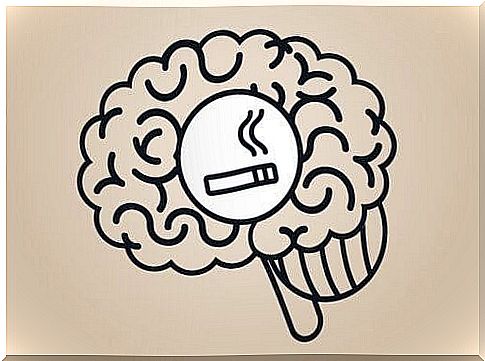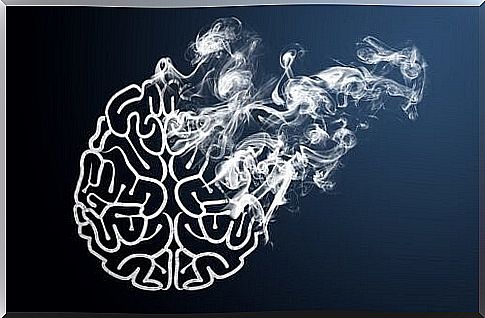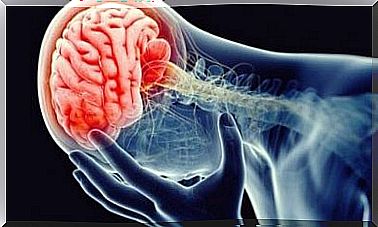Nicotine: How Does It Affect The Brain?

For a long time, many people have ignored the fact that nicotine can lead to addiction. However, researchers have discovered that this drug can lead to addiction, just as hard drugs can.
Nicotine is able to modify the brain. Through complex mechanisms, it provokes changes in the brain’s reward system. In other words, it creates a pleasant feeling that the brain begins to become addicted to. This causes the body to need this substance.
Only the smoker can decide if he or she wants to quit smoking. This decision and process is difficult, but not impossible. The following information will illustrate the effects of nicotine on the brain so that the smoker will not be surprised.
This is how nicotine works in the brain
When a person ingests nicotine, there is a group of brain acetylcholine receptors that are activated. These receptors release dopamine. Dopamine is a neurotransmitter associated with the feeling of motivation and pleasure. In short, smoking creates a chemically induced feeling of well-being.
The body quickly carries nicotine to the brain. It is estimated that it only takes about 10-15 seconds for the nicotine to pass from the lungs and through the bloodstream. Studies show that any substance we smoke is potentially addictive.
The brain has its own “nicotine”: Acetylcholine. It also has its own form of marijuana, morphine, heroin, etc. This means that the brain can mimic the effects of these substances without ingesting them.
This happens when we have positive experiences, when we achieve a goal, for example, when we laugh, or when we break a record. But if we use chemicals to trigger the effects of dopamine artificially, there is a risk that we will become addicted.

Nicotine addiction
When you ingest nicotine or another similar substance, the brain quickly reaches a state of well-being. If this occurs regularly, the brain is less and less able to generate pleasant sensations that are not associated with the intake of the drug. In other words, it becomes more difficult to enjoy the same satisfaction naturally.
At the same time, the brain begins to crave this state of well-being relatively often. For this reason, one may experience unpleasant symptoms such as restlessness, nervousness and anxiety, which causes the person to ingest nicotine to make these feelings go away. This does not happen when the brain experiences pleasure naturally.
Harmful effects of smoking
Cigarette production is in the hands of large multinational companies. They have not spared effort when it comes to studying consumer behavior and promoting addiction.
They regulate the amount of nicotine in each cigarette so that the addiction is maintained. They make cigarette packs with 20 in, as studies have shown that a larger amount than this a day can lead to discomfort. Everything is carefully planned.

Nicotine causes the brain to age faster. It reduces the brain’s ability to solve problems, make decisions, learn and control impulses. This substance weakens the prefrontal cortex of the brain. It also makes the consumer more vulnerable to addiction.
It is not easy to quit smoking, which is because of all the things we have mentioned above. One must have willpower and an effective strategy. It is best to stop smoking completely – not gradually. At the same time, you need to create a positive reward system, which can be a great help.









